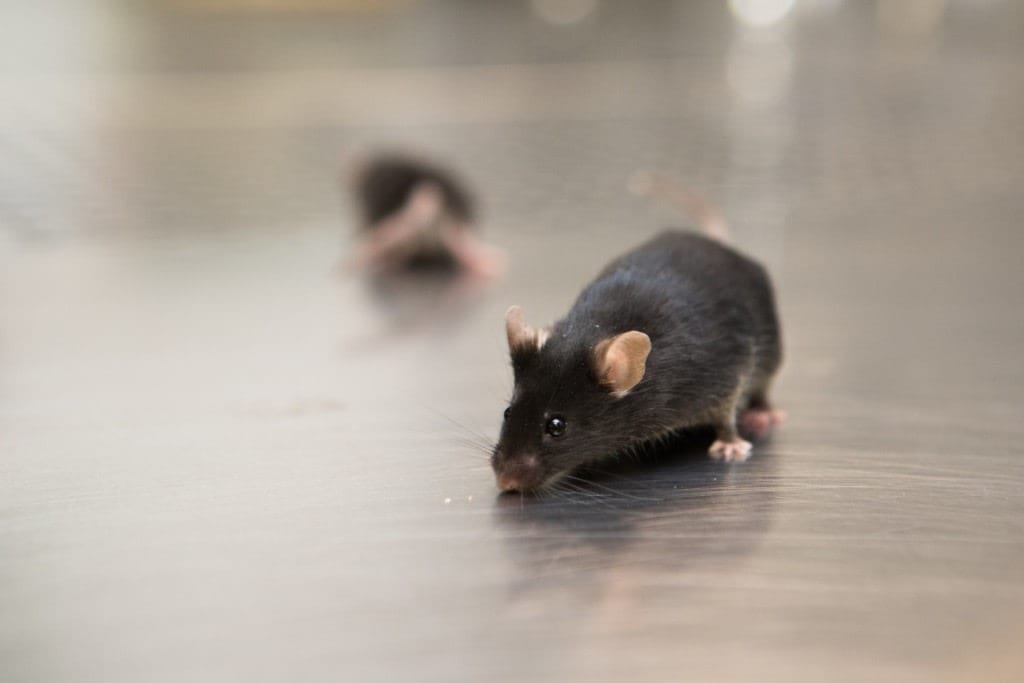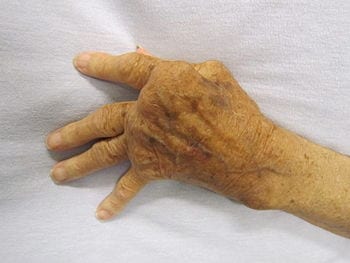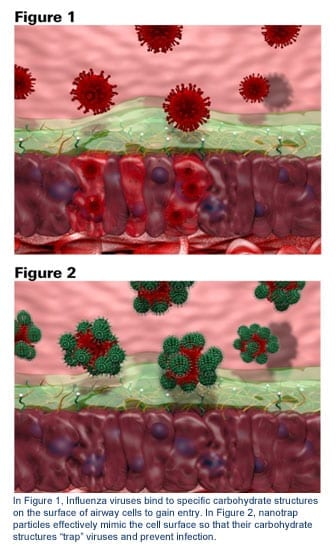
Scientists cured mice of stress-induced depression using new drugs.
For the last century, research on depression has focused on neurons. But a new study by Israeli and American researchers shows that another type of cell, called the microglia, can cause depression in situations of prolonged stress.
What’s more, they found that using new types of drugs to stimulate the microglia enabled them to cure the depressive symptoms in mice more effectively than could be done using existing anti-depressants.
The researchers from the Hebrew University of Jerusalem and the University of Colorado plan to test the clinical effectiveness of these drugs on human patients in the near future.
The study, which was financed by the National Science Foundation, was published this week in the journal “Molecular Psychiatry.” It was conducted by Hebrew University Prof. Raz Yirmiya and doctoral student Tirzah Kreisel in conjunction with colleagues from the University of Colorado.
That prolonged stress can lead to depression is well known. But the current study, based on experiments conducted in mice, is the first to argue that microglia play a significant role in this process. Specifically, changes in the structure and functioning of microglia can cause depression in situations of prolonged stress, the researchers found.
Microglia, which constitute about 10 percent of all brain cells, are essentially the immune system’s “agents” in the brain. Like immune cells in other parts of the body, they play a role in fighting off bacteria and viruses. But they also play a unique physiological role in brain activity, including in its response to stress situations.
The study involved putting mice in daily situations of moderate but unpredictable stress.
After five weeks of this, the mice developed symptoms of depression: They displayed no interest in pleasurable activity like social play or drinking sweetened beverages, and their production of new brain cells decreased.
The Latest on: Anti-depressants
[google_news title=”” keyword=”Anti-depressants” num_posts=”10″ blurb_length=”0″ show_thumb=”left”]
via Google News
The Latest on: Anti-depressants
- I thought I could beat postpartum depression on my own, but it was beating meon April 27, 2024 at 8:09 am
I could not stop crying. I was two weeks postpartum and my OB-GYN’s office had called to schedule my six-week checkup, but I could barely answer the receptionist’s question about what day I was ...
- Brickner: This apple did fall far from the treeon April 27, 2024 at 7:36 am
As Earth Month ends, we might remember the environmentalism of Robert F. Kennedy, Jr., son of the talented but tragic 1968 presidential candidate, Robert “Bobby” Kennedy. But, now, as a presidential ...
- 30 Most Miserable Countries in the Worldon April 27, 2024 at 6:50 am
In this article, we shall discuss the 30 most miserable countries in the world. To skip our detailed analysis of the current macroeconomic outlook in 2024, the intricate link between poverty ...
- Can Genetic Testing Reveal the Right Antidepressant?on April 27, 2024 at 6:23 am
Pharmacogenetic testing is also insightful about how non-pharmaceutical interventions, such as dietary supplements like l-methylfolate or magnesium, might benefit patients. The test even offers ...
- 5 Exercises for a Better Sex Lifeon April 27, 2024 at 2:00 am
Finally, dynamic exercises such as deep squats and glute bridges mobilize the hips and build strength. And if you want to dial up the intensity, weighted squats, leg presses and kettlebell swings can ...
- Magic mushrooms may help ease depression, but are they safe?on April 25, 2024 at 2:44 pm
The potential of magic mushrooms to act as a 'magic' solution to treat depression is getting a lot of attention. One of the most important aspects is safety.
- Morrison reveals decision to take anti-depressants during premiers’ ‘pile on’, AUKUS decisionon April 25, 2024 at 5:45 am
Former prime minister Scott Morrison has revealed he took prescription medication to deal with mental health challenges while in office.
- What You Really Need to Know About Antidepressantson April 25, 2024 at 2:04 am
More research is needed to better understand how antidepressants work and their efficacy, especially when taken over the course of several years.
- Side effects of 'magic mushrooms' similar to regular antidepressantson April 24, 2024 at 7:51 am
People in a new study who took psilocybin often experienced headache, nausea, anxiety, dizziness and elevated blood pressure -- side effects similar to those seen with regular antidepressants.
- Sharon Osbourne admits she’s been on anti-depressants for over 30 yearson April 16, 2024 at 9:41 am
After surviving cancer and while going through hell watching her husband Ozzy battle Parkinson’s, Sharon Osbourne has admitted she has been on anti-depressants for more than 30 years even though ...
via Bing News










